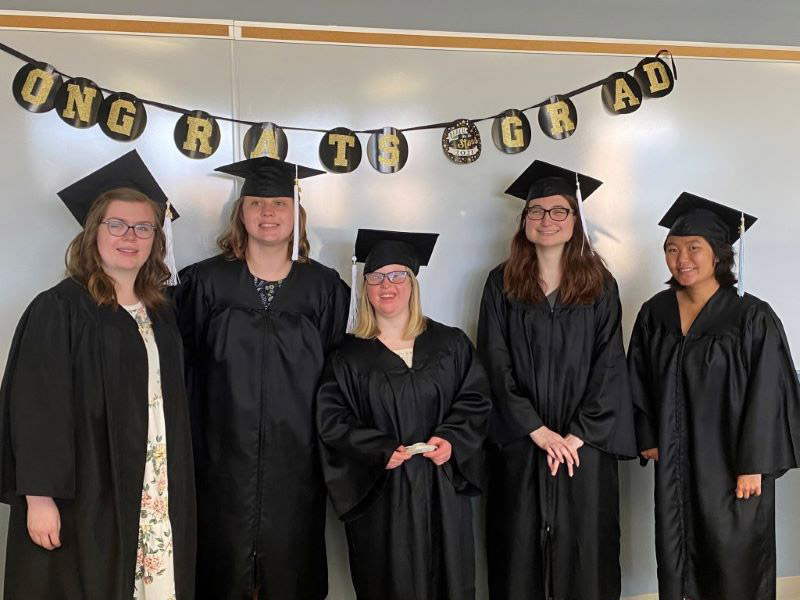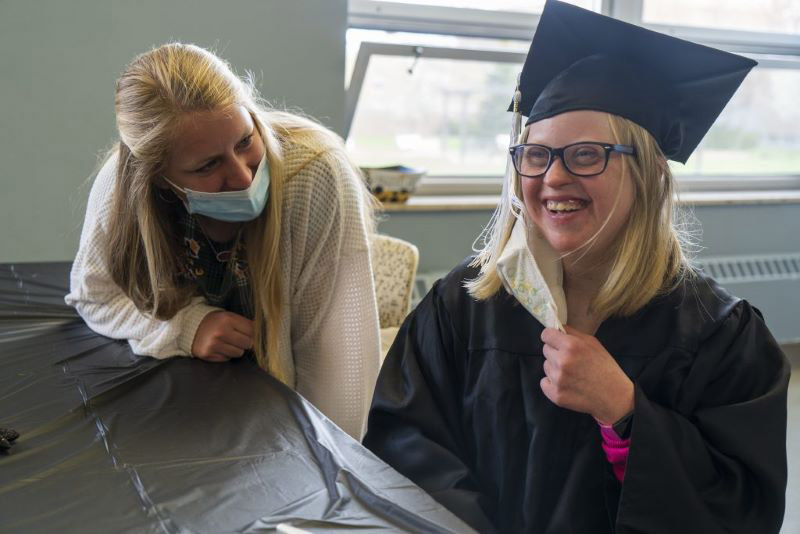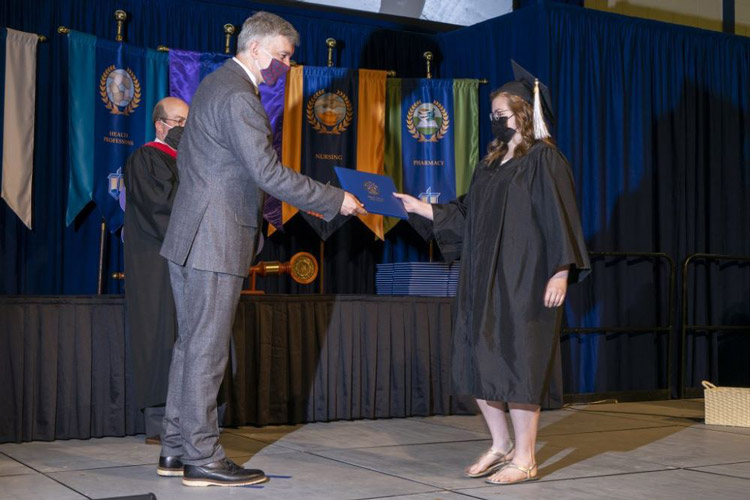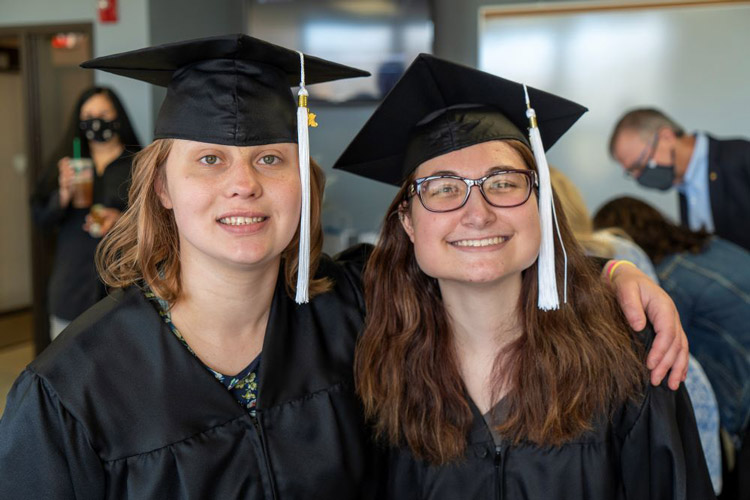Last weekend, eight young men and women took 10 steps across a stage—and a huge step forward in their lives—as they celebrated their graduation from AbleLight College.
AbleLight College is a post-secondary program hosted at Concordia University of Wisconsin that immerses students with intellectual and developmental disabilities in a true college experience, including living in the dorms, while teaching them valuable adult living skills. In addition to auditing Concordia classes of their choice, the students participate in a curriculum that includes job coaching and hands-on training, financial management, transportation, and more—life skills designed to help them live more independently after graduation.

Lauren completed the program last year, but since commencement ceremonies were canceled amid the pandemic, she was thrilled to be able to walk with her classmates this year. Since finishing the program, she’s been living with roommates and working at a restaurant in her neighborhood.
“AbleLight College taught me a lot,” she said. “How to do laundry and chores. How to cook. And to believe in myself. I feel like everything has helped me become an independent woman. I’m very proud of my progress.”
At AbleLight, we’re dedicated to helping people like Lauren and her classmates live their best lives and reach their full potential. But we also believe our work and our mission go beyond that. Because it’s not only people with disabilities who are given a chance to grow and flourish—it’s everyone who comes into contact with them.
Micah, a Concordia student who works as a Resident Assistant (RA) shared her experience helping the AbleLight College students adapt to college life. She says having her RA job in addition to attending school full-time can be stressful but working with the AbleLight students makes everything worth it.
“They’ve influenced my life so much,” she said. “I’ve learned so much, I’ve grown so much. I’m grateful for each of them.”
And she’s not the only one.
“There’s so much the Concordia students get from working with the AbleLight College students, beginning with how to interact with them,” she said. “Like, even if they’re with a support person, you don’t talk to the support person. You talk to the student. And that’s something not everybody has experience with, but we learned.”

Eugene Pitchford, Assistant Professor in the School of Education at Concordia, also treasures the opportunity to work with the AbleLight students. In fact, he loves them so much he requests them in his classes.
“In my class, we’re all students, and we all get treated fairly,” he said … although he admits students with disabilities are often favored by their non-disabled peers. “The AbleLight students are rock stars. They’re the fan favorites.”
“But here’s the why I really like having AbleLight students in class,” he said. “At times, they will get concepts quicker than anyone else. Or at times, their experiences are different, like, ‘Oh, I never saw it this way.’ And now, because of that experience, I’m able to take that to the next class. It’s a circular thing. We all learn and grow from each other.”
The environment at AbleLight College is a perfect example of inclusion. Of how supporting people with disabilities lifts us all up. Of how disability, when seen and embraced as a natural and beautiful part of human diversity, enriches us all.
“We don’t need 100 of me or 100 of you to have this spice of life,” said Pitchford. “We’re all different. We all have different abilities, strengths, and weaknesses. But we all make up the bigger body of the community, so there is no exclusion.”
Looking to the future

The AbleLight College program at Concordia University of Wisconsin has demonstrated tremendous growth and success since its inception. And now, we want to take it to the next level and give even more students the chance to attend college. Our team is currently exploring additional opportunities to partner with and establish AbleLight College programs at more universities across the country, and particularly in areas where such programs are scarce.
“We’re researching and looking into a number of opportunities,” said Kristine Leonard, Senior Director of Transition Services at AbleLight. “We want to go where the need is greatest and where we know we can make the most impact. I’m so proud of our staff and all of our students and the overall success of this program, and I’m thrilled at the prospect of making it available to even more students in the future.”

